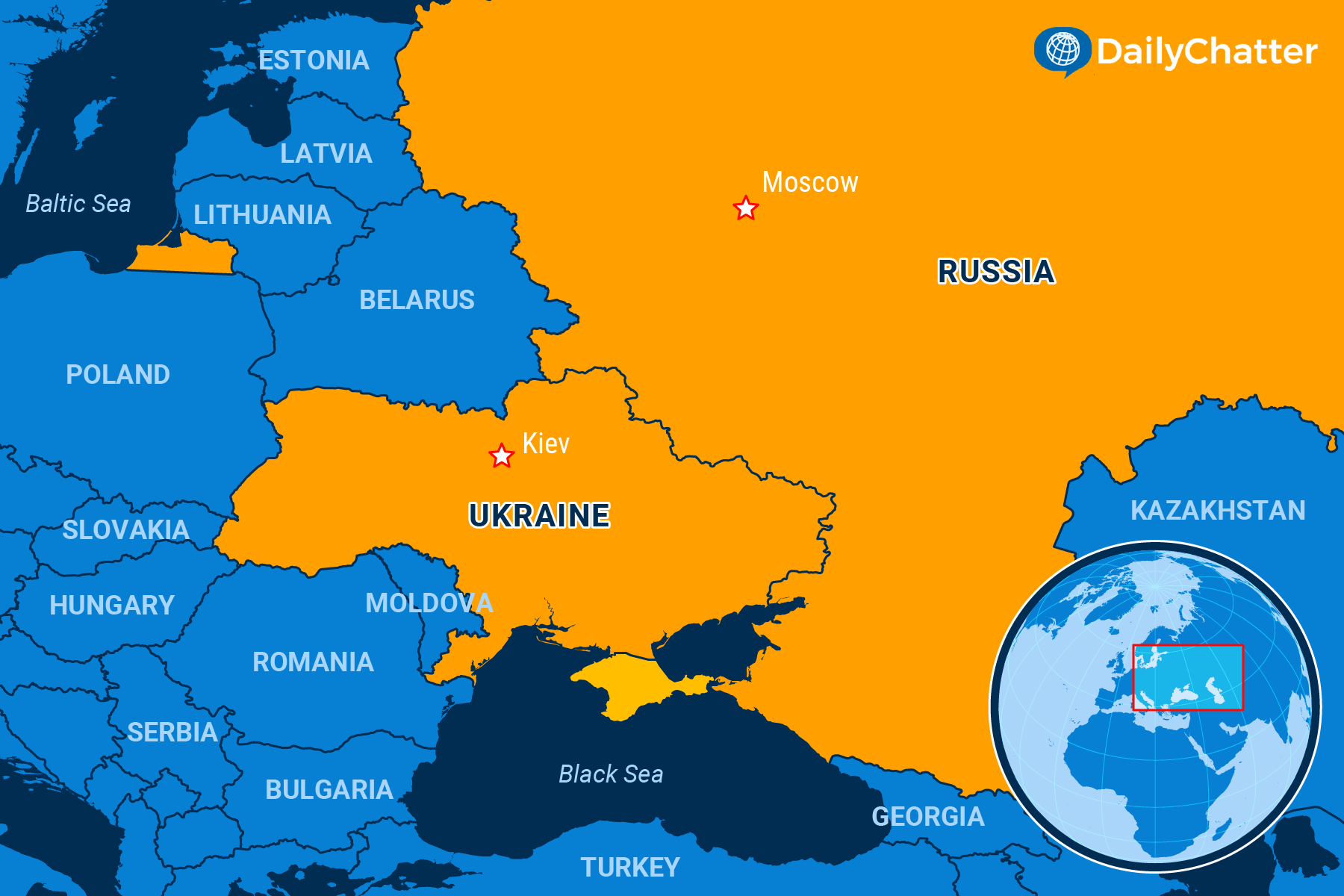
The World Today for February 23, 2022
NEED TO KNOW
The Borderland
RUSSIA/UKRAINE

Ukraine means “borderland” in Slavic languages. Today, the fate of the country could determine a new frontier between Eastern and Western Europe.
That’s because when Russian President Vladimir Putin ordered Russian troops to roll into two separatist regions in eastern Ukraine on Monday after recognizing them as independent states – eight years after Russia annexed the Ukrainian territory of the Crimea – he threw down a gauntlet.
The breakup of the Soviet Union in 1991 after the end of the Cold War, particularly the separation of the former Soviet republics of Russia and Ukraine, was a humiliation that, in the mind of leaders like Putin, permanently hobbled Russia. As the Wall Street Journal explained, Putin wants to renegotiate the terms of that peace.
Putin claims, for example, that American and European leaders promised that they would never expand NATO into former Warsaw Pact countries in Eastern Europe or the former Soviet Union, the Council on Foreign Relations wrote. Western leaders dispute that view. But there is no doubt that NATO has grown and has more members on Russia’s borders.
Deploying Russia’s vaunted military, betting that Europe won’t want to challenge the invasion due to the continent’s dependence on Russian energy and creating instability to demonstrate the fragility of the US-led Pax Americana – these are the strategies deployed by Putin to show that Russia is a first-rate power, noted the New York Times.
That China recognized Russia’s legitimate security concerns in Ukraine, as the Washington Post reported, reflects how Putin – and Chinese authoritarians, too – are seeking to challenge a planet where elites in Hollywood, Silicon Valley, Washington, Wall Street and the Berlin-London-Paris triangle have long held sway.
One might sympathize with the Russian leader if he didn’t sit atop a regime that, as Freedom House detailed, routinely violates human rights, controls the media, stokes corruption and organized crime and suppresses political dissent.
Nobody believes NATO wants to fight Russia over Ukraine, though many fear the possibility of a broader war because powerful nations often stumble into conflicts that escalate.
For now, the West is responding with sanctions that appear to be tougher than any that came before. Germany, for example, surprised many when it halted approval of the Nord Stream 2 gas pipeline, CNN reported. While cutting off that energy supply will hurt Germany, it will also prevent Russia from receiving vital foreign currency that props up its economy.
The US imposed tough sanctions on Russian banks and elites and banned the Russian government from raising money or rolling over its sovereign debt on American or European markets, Politico added. Those moves only scratch the surface of the Russian economy, however, Reuters claimed. Russia has lived with sanctions for years and has stockpiled resources to get through another round. Even so, these measures could just be the first of a series of sanctions that eventually could cripple the country, especially if and when the price of oil falls.
A waiting game has begun. At present, Putin’s troops are sticking to the eastern Ukrainian regions where Russia was already in control. If they stay put, talks and economic harm can continue. If the troops press on to Kyiv, sanctions will be weak tea for Ukrainians who aspire to join the world that Putin is trying so hard to upend.
To read the full edition and support independent journalism, join our community of informed readers and subscribe today!
Not already a subscriber?
If you would like to receive DailyChatter directly to your inbox each morning, subscribe below with a free two-week trial.
Support journalism that’s independent, non-partisan, and fair.
If you are a student or faculty with a valid school email, you can sign up for a FREE student subscription or faculty subscription.
Questions? Write to us at [email protected].
